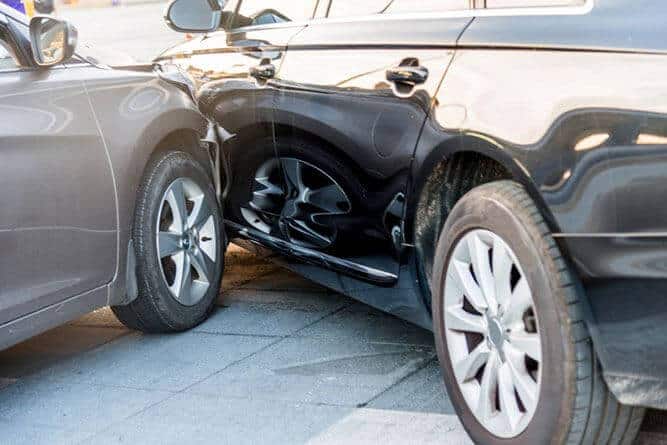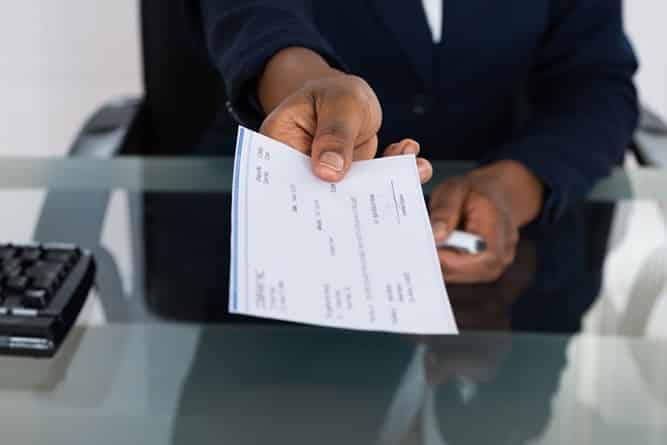Negotiating a fair settlement or winning a jury trial is a cause for celebration. However, sometimes this is also only the beginning of the process. Once you win your case, you need to go about collecting your judgment. This can often prove to be just as complicated, if not more, than the process of bringing your case.
When the other side doesn’t immediately pay what they owe, you might have to take steps to collect the judgment. In some cases, this isn’t hard to do. In other cases, it can be a real challenge. It’s important to consider both scenarios when bringing your case, so you are prepared in the event that you have to collect.
Here’s what you need to know about collecting a car accident settlement or judgment:
START YOUR FREE CONSULTATION
NO FEES UNLESS WE WIN!
The Vocabulary
When you’re working on collecting the money the other party owes you, there are a few keywords to know:
- Execute: to take property to collect a judgment.
- Judgment: the order that awards you money. You can arrive at a judgment by trial or by a settlement.
- Judgment creditor: the person that’s owed the money.
- Judgment debtor: the person or party that owes the money.
- Satisfy: when you collect the judgment you deserve.
How Long Do They Have to Pay?
The other side usually has ten days to pay you from the date the court signs the judgment. The 10-day limit comes from the Nevada Rules of Civil Procedure number 62. If the other side doesn’t voluntarily pay, the court isn’t going to be any help. Instead, you have to take steps to collect your judgment for yourself.
What Happens If They Don’t Pay?
When the other side doesn’t pay what they owe you, you can seize their assets. You look for things like wages, bank accounts, investments, real property, and large items of personal property. Then, you file the paperwork to take these items to satisfy your judgment.
Writ of Execution or Writ of Garnishment
If you already know where to find the party’s assets, you prepare a writ of execution or a writ of garnishment. A writ of execution is for property in the other party’s possession. A writ of garnishment is for the person’s property that’s in the custody of a third party like wages. You file the writ with the appropriate court and pay the filing fee. For a writ of execution, you must also attach a notice of execution.

Exemptions
Nevada law has several categories of assets that are exempt from seizure. If the other party’s asset is on the list, you can’t take it to satisfy your judgment. Some types of exempt property include:
- 75 percent of pay or 50 times the minimum wage for weekly pay, whichever is more
- Disability pay
- Unemployment pay
- Veteran’s benefits
- Worker’s compensation payments
- Public assistance payments
- Social security
- Certain Individual Retirement Accounts
- A homesteaded property up to a particular value
- Household goods up to $12,000
- One vehicle if the value or owner’s equity is $15,000 or less
What If I Don’t Know What Their Assets Are?
If you need to find the other party’s assets to execute on them, you can use what’s called a judgment debtor examination. At a judgment debtor examination, the debtor has to swear to tell the truth. Then, they have to answer questions about their assets and where to find them.
How Long Do I Have to Collect My Judgment?

In Nevada, a judgment is good for six years. If you’re 90 days away from the expiration date of your judgment, you can file paperwork to renew it. Nevada Revised Statute 17.214 gives a list of requirements that you need to include in your affidavit for renewal.
What If the Judgment Is from Another State?
If you have a judgment from another state and the party has property in Nevada, you may need to follow the rules for collecting a foreign judgment. You need to register the foreign judgment in the appropriate court, and then you can go about collecting it. However, there are a few minor procedural differences to be aware of.
Can an Appeal Affect My Judgment?
There are a few court actions that the other side might take after you have a settlement or trial verdict. They might file an appeal. They might ask for relief from judgment. They might also ask the court to correct clerical errors in the judgment.
If the Other Side Appeals, Can I Still Collect My Judgment?
In most cases, the other side can’t avoid paying you by filing an appeal. The court has limited options to allow the judgment debtor to hold off on paying the judgment on appeal.
In the vast majority of cases, the party that wants a stay has to file a bond with the court. That means they have to deposit the amount of money with the court to satisfy the judgment. That way, if they lose the appeal, the money is right there for you to take.
What Usually Happens?
If the other party is insured, whether you reach a judgment by settlement or by trial, you should get paid relatively quickly. If you settle the case, you’ll need to put it in writing and sign a document called a release. If it’s by trial, the insurance company should know about the judgment and pay you soon.
When the other party doesn’t have insurance to pay your judgment, it might be harder to collect. While a party is more likely to pay a judgment when they voluntarily agree to it rather than have it handed down in the form of a trial, the other side may not be able to pay, or they might just refuse to pay. In that case, you’ll need to start taking steps to collect your judgment.
Working with an Attorney
An experienced injury attorney knows that what you ultimately want is dollars in your pocket. They understand that having access to your fair compensation is crucial to getting the treatment you need to make a full recovery. Any delay in receiving your judgment can potentially harm you further. This is why it’s essential to contact a lawyer quickly after the accident to ensure you have someone with the resources and expertise necessary to get you what you deserve.
A qualified car accident attorney has experience helping deserving victims take the necessary steps to collect what they’re due. They can help you find assets and create a plan to execute the judgment in your case.
Areas We Service in Las Vegas, Nevada
Las Vegas Strip | Henderson | Anthem | Summerlin | Paradise | Spring Valley | North Las Vegas | Summerlin North | Summerlin South | Sunrise Manor | Nellis AFB | Desert Shores | Downtown South | Charleston | Richfield | Crestwood | Angel Park Ranch | Queensridge | Casa Grande Pines | Winchester | West Las Vegas | Green Valley North | Lake Las Vegas | Sun City Summerlin | La Madre Foothills | Tule Springs | Mac Donald Highlands | Green Valley Ranch
Adam S. Kutner reviews and testimonials
“We were in a car accident – we were coming off of the interstate and were waiting – yielding at the exit and a car sped through the exit and smacked us in the rear.
It was definitely scary especially because we had our baby in the car. My husband and I and our baby in the back seat. We definitely – immediately went back in and checked on her to make sure she was okay.
We definitely had back pains my daughter had headaches. She kept holding her head and crying. It was pretty bad. I remember seeing a couple billboards and a friend of mine did say they had a pleasant experience with Adam Kutner, so we called them right up. They definitely were thorough, and you could tell just by talking to the people in the office that they genuinely cared about their clients.
They contacted us saying you know, explain the process on how the settlement gets done and about a week after that happened we had our settlement which was great and in my opinion Adam S. Kutner is the best attorney in Las Vegas.”
– Janae Reynolds. 5/5 Stars
START YOUR FREE CONSULTATION
NO FEES UNLESS WE WIN!
SE HABLA ESPAÑOL
Call Now! Free Consultation!

Adam S. Kutner
PERSONAL INJURY LAWYER
With more than 33 years of experience fighting for victims of personal injury in the Las Vegas Valley, attorney Adam S. Kutner knows his way around the Nevada court system and how to get clients their settlement promptly and trouble-free.












